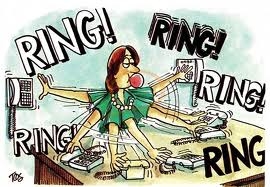Hack:
Cost vs. Efficiency- Success is not a cost factor but an efficient factor

Cost (in production, research, retail, and accounting), is the value of money that has been used up to produce something, and hence is not available for use anymore (Wikipedia).
Efficiency is the extent to which time, effort, or cost is well-used for the intended task or purpose. It often comprises specifically the capability of a specific application of effort to produce a specific outcome effectively with a minimum amount or quantity of waste, expense, or unnecessary effort (Wikipedia). This shows that the relationship between cost and efficiency is very crucial and important to organisations.
Cost cutting measures are currently the favourite and most dreaded topic in management meetings. While these cost cutting measures affects both profit and efficiency, many organisation are happy with the outcome, as they only see the savings achieved. Neglecting that better efficiency will lead to more profitability, expansion and goal congruence. Most organisations in a bid to cut cost will reduce their balance sheet, thereby reducing income, which a competitor will take up, as an advantage in the marketplace. Remember that in the current marketplace, the consumer is the one that determines who is the winner between the two organisations. In my opinion organisations that are cost focused are not as successful as organisations that are efficient focused.
In this article, I will use a real life organisation and sector to explain the correlation between cost and efficiency.
The oil factor forced most airlines into almost perfect efficiency as they tried to be profitable with the high cost of oil. Oil accounts for around 80% of the cost for most airlines. With the price of oil going from $100 to below $50 per barrel, their costs have been halved and with their already attained efficient model of operation, their profits are all going up to unbelievable heights and to the delight of shareholders and investors. From the table below you will see the effect of the crude oil price and efficiency on the share price of Ryanair. As Ryanair’s balance sheet increased, so did their share price, but the increase was not sustainable due to high cost of crude oil. During this phase, Ryanair tried every strategic formula to remain afloat and profitable, achieving a very high efficient model. Now with the drop in crude oil price the share price and profits has doubled due to the efficient model achieved.
Ryanair share chart- from www.ise.co.uk
This formula can as well be applied or used in any industry by doing the following;
1. Find out the major cost for your industry.
2. Find out the actual cost drivers increasing your cost.
3. Find out the inefficiencies in your organisation. These are wasted time, resources, raw material and many more.
4. Gradually and effective create a new strategy to reduce these cost drivers to the bare minimum, while targeting to limit the organisations inefficiencies to zero.
I would advise organisations to first look at achieving efficiency before trying to cut cost, as they both work hand in hand. Remember working hard is not a guarantee of achieving efficiency, but being efficient is ticking all the right boxes at the right time and right price depending on available resources or doing the right thing at the right time, at the right price with the available resources.



You need to register in order to submit a comment.